Congratulations! You now have a little bundle of joy.
I know it’s difficult to settle in at first especially on the first few weeks. More so, in developing a routine. But don’t worry mama, you’ll get through it. So while both of you are transitioning on the big change in your lives (you, your baby and your family), it’s equally important to also include a daily activities for newborn babies. Just like you, I was also surprise to know that babies can do more than sleeping, eating and pooping.
Check out my 7 suggested activities for your newborn babies that you can easily incorporate on your daily routine.
1. Bring our babies out
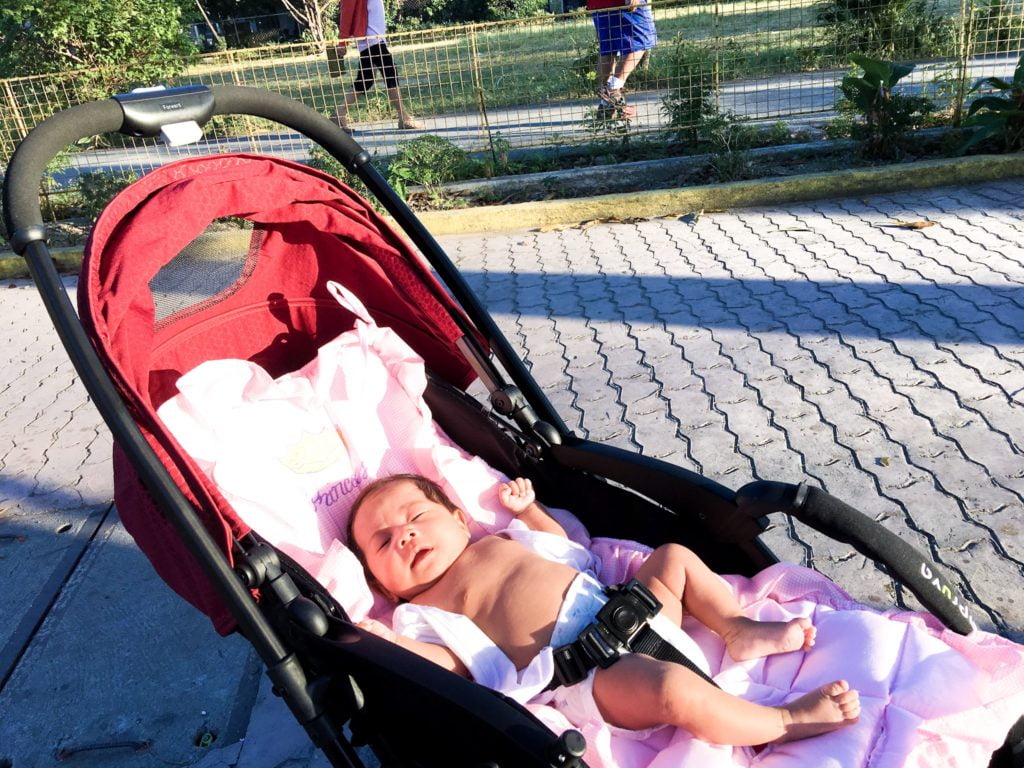
Before you can bring home the baby, a pediatrician or a healthcare professional will give you few reminders on how to care for your newborn. This includes bringing your baby outside everyday for sunbathing. The good thing about this – is our babies will be exposed to…
- a different atmosphere
- outdoor objects like moving cars, flying birds etc.
- other people (strangers)
- animal sounds like barking dogs, chirping birds etc.
2. Talk to our babies
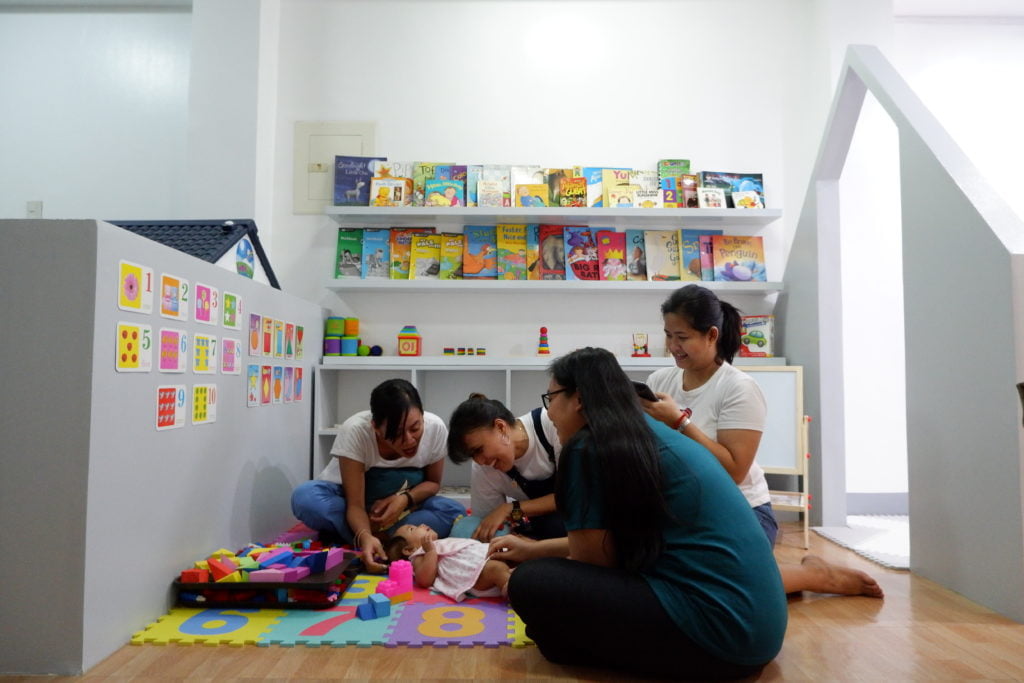
Though this should already be part of the basic expectations from us as their parents, I still like to highlight its importance. This is very crucial on their development because their brain absorbs the sounds and tones. When we often talk to our babies, it will help them better understand the language and communication. This will also increase the number and variety of words that they can eventually use.
Some of my suggestions are:
- Let’s talk to our babies as often as possible: Whether we are changing their diapers, feeding them, rocking them to sleep, before carrying them and many other instances.
- When our babies tries to respond with coos, babbles and gurgles, we should not interrupt nor look away. They need to know that we are actively listening to them
- It’s also important that we have an eye-to-eye contact with them whenever we are talking.
- Another is, we can also narrate what we are doing. For example during bathing time, we can tell them that we are about to put the shampoo on their hair etc.
3. Tummy time
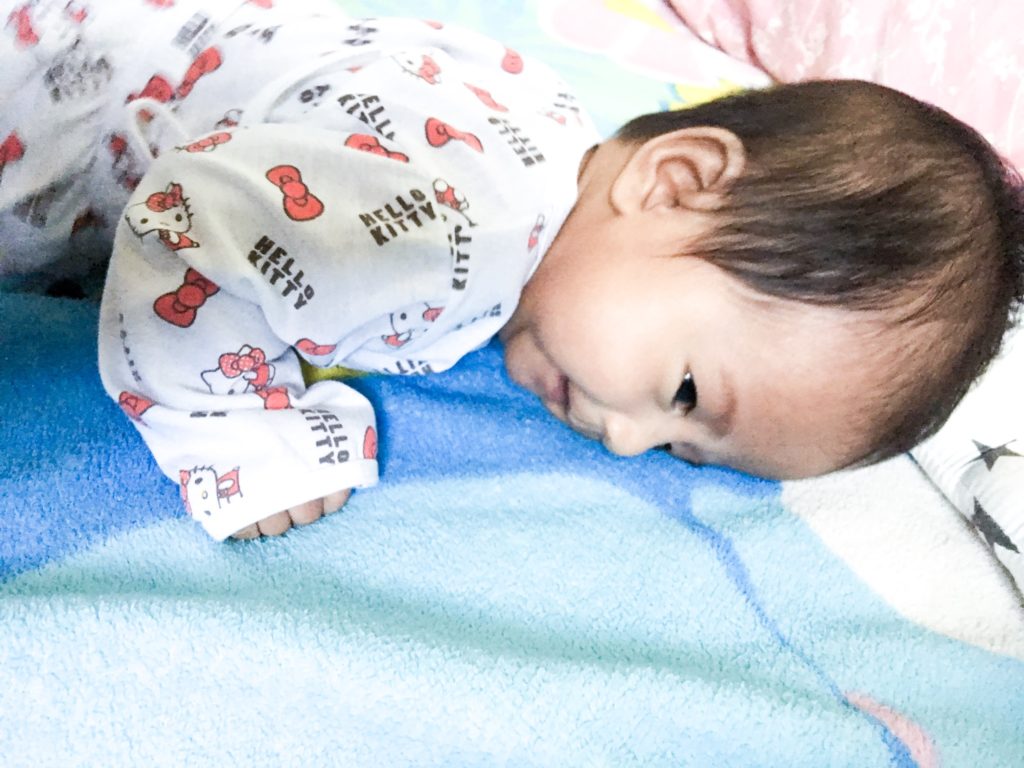
“Tummy Time” is giving our babies a time lying on their belly while they are awake and supervised. This encourages them to lift their heads that will eventually strengthen their head, neck and shoulder muscle. It also boosts their motor skills. Moreover, this is also a good preparation for the down-the-road milestones like rolling over and crawling.
For newborn, a two to three sessions a day for 1 to 3 minutes at a time is a good start. As our babies grow older, we can increase the duration to 15 minutes. It’s best to do this after nap time or diaper change.
4. Listen to music
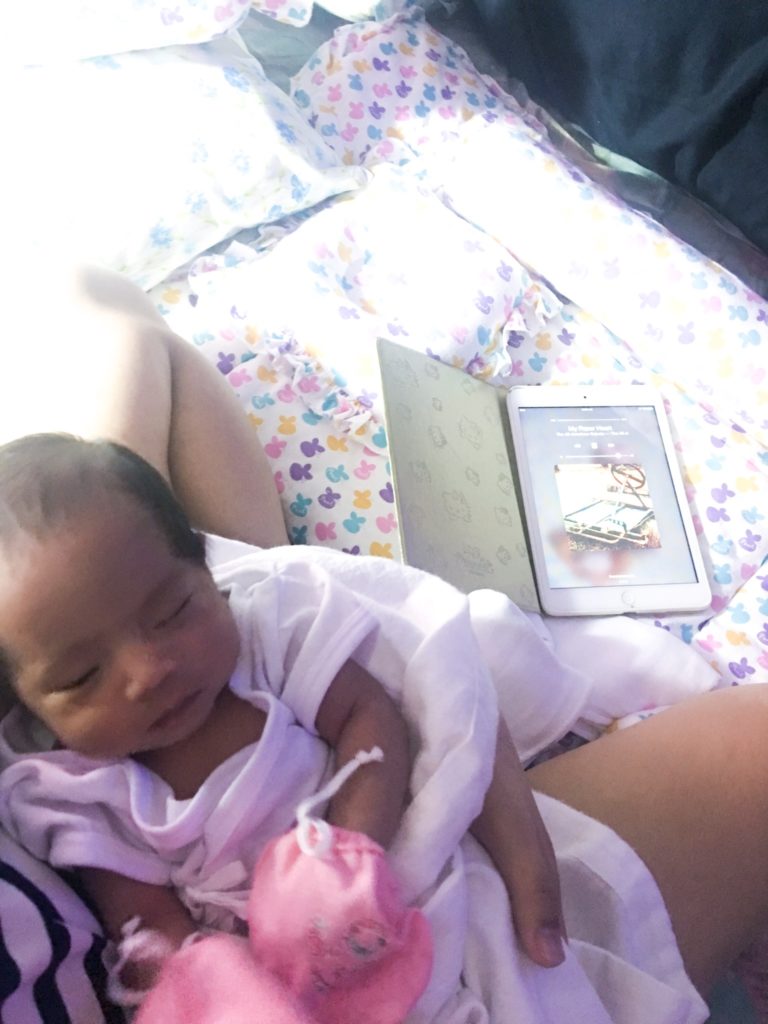
Music can uplift anyone’s mood, even babies! But did you know that music also has a great impact on their cognitive and sensory development?
Here are few ways on how we can include music on their daily activity:
- Play upbeat music the moment they wake up
- Sing to our babies
- Let them make their own music through their coos, babbles and gurgles
- Play slow music at bedtime
5. Use infant stimulation flashcards or mini books
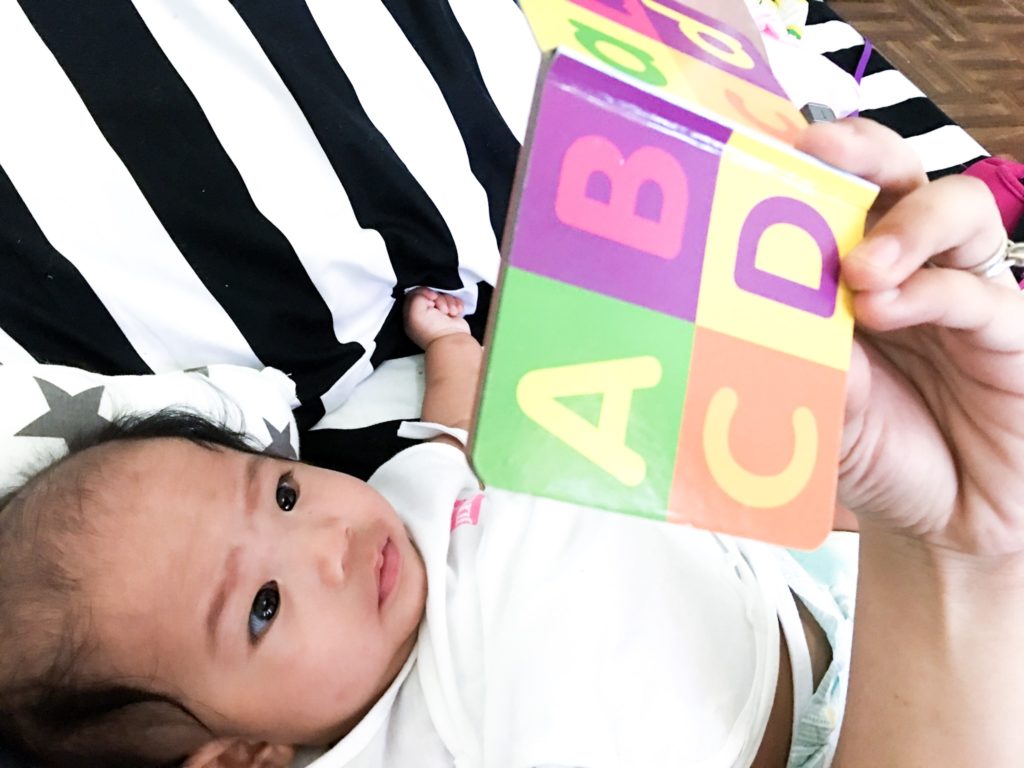
Our baby’s vision isn’t fully developed after birth. What they can only see with their young eyes are objects 8-12 inches away from them. These objects should be high contrast, black and white and bold patterns. The primary goal of this activity is to expose our babies into different kind of images that can help stimulate their brain development.
6. Introduce different kinds of textures
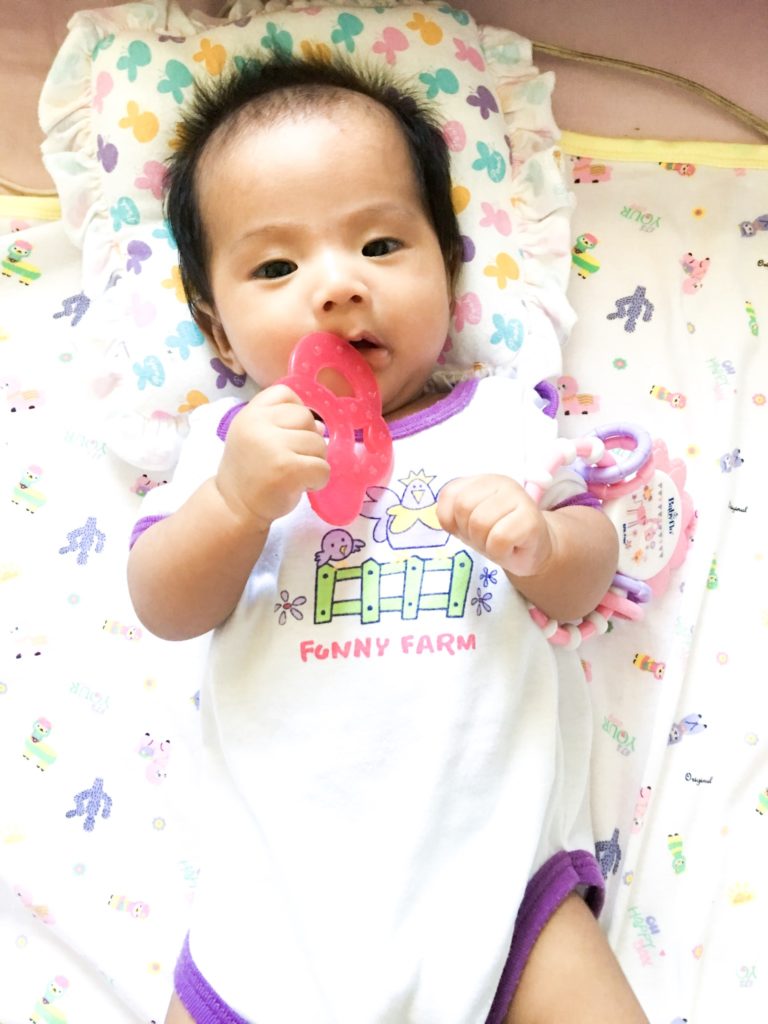
Babies are curious by nature. They love to touch (and lick) on anything. We can take advantage of this curiosity and introduce them to different textures around them.
Here are few samples:
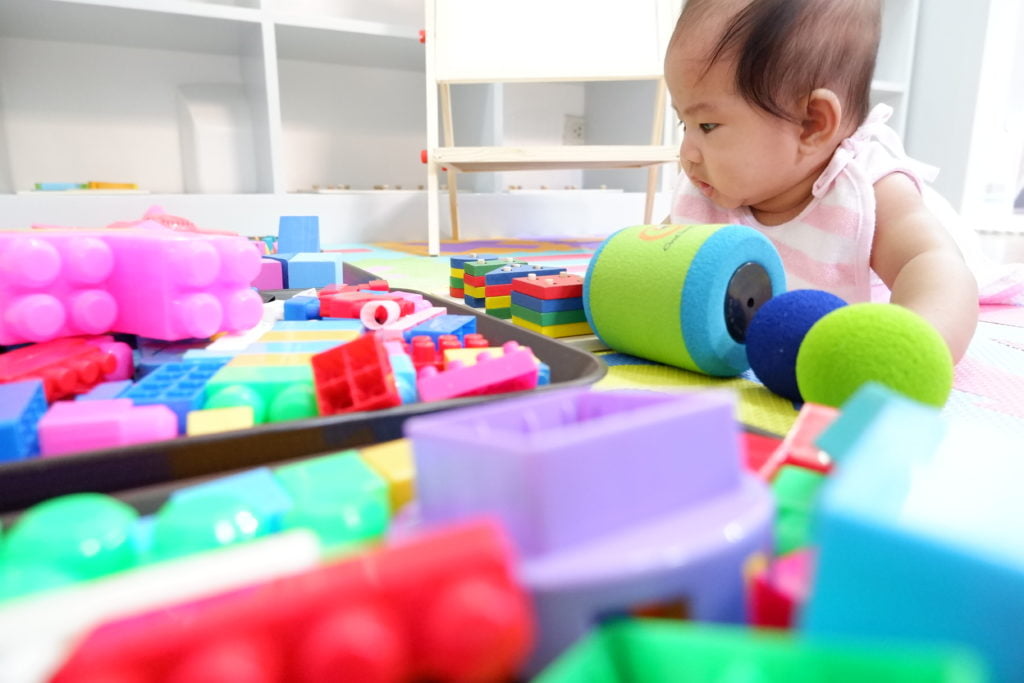
- Fluffy – Cotton Balls
- Squishy – Stuff Toys
- Rough – Tooth brush
- Smooth – Toys
6. Use baby play gym
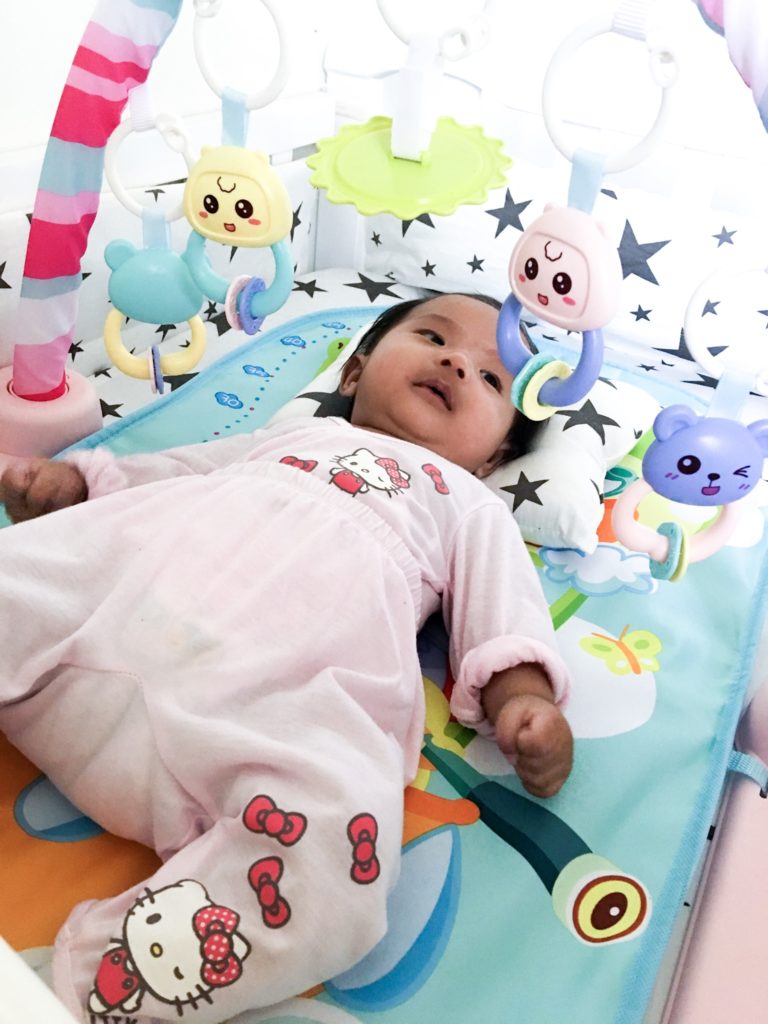
During our babies first week, they will only sleep, eat and poop on repeat. But as days pass by, they will be asking for things that will keep them entertained. We can introduce them to a baby play gym – a soft mat with an arch that supports toys. Sometimes it has kick-activated piano and baby-safe mirrors. This is a perfect tool that will help them with their development while playing.
- Cognitive Development – this tool let them understand the “cause and effect”. When our babies kick on the piano or hit the dangling toys, the piano or the toys will provide a reaction. This will encourage our babies to do it over again because it is fun for them! This will also help them develop their eye and hand coordination.
- Visual Development – As I mentioned earlier, our baby’s vision isn’t fully developed after birth. Anything that’s farther than 12 inches from them is blurry. Baby play gym is a great set up while their vision is still developing.
- Self-awareness – Most of baby play gym now has baby-safe mirrors. This is a small non-breakable mirror that’s dangled so our babies can see their reflections.

THAT’S IT MOMMIES! Please take note that more than the developmental benefits that you’ll get on these activities, it’s more essential that you developed a special bonding with your newborn.

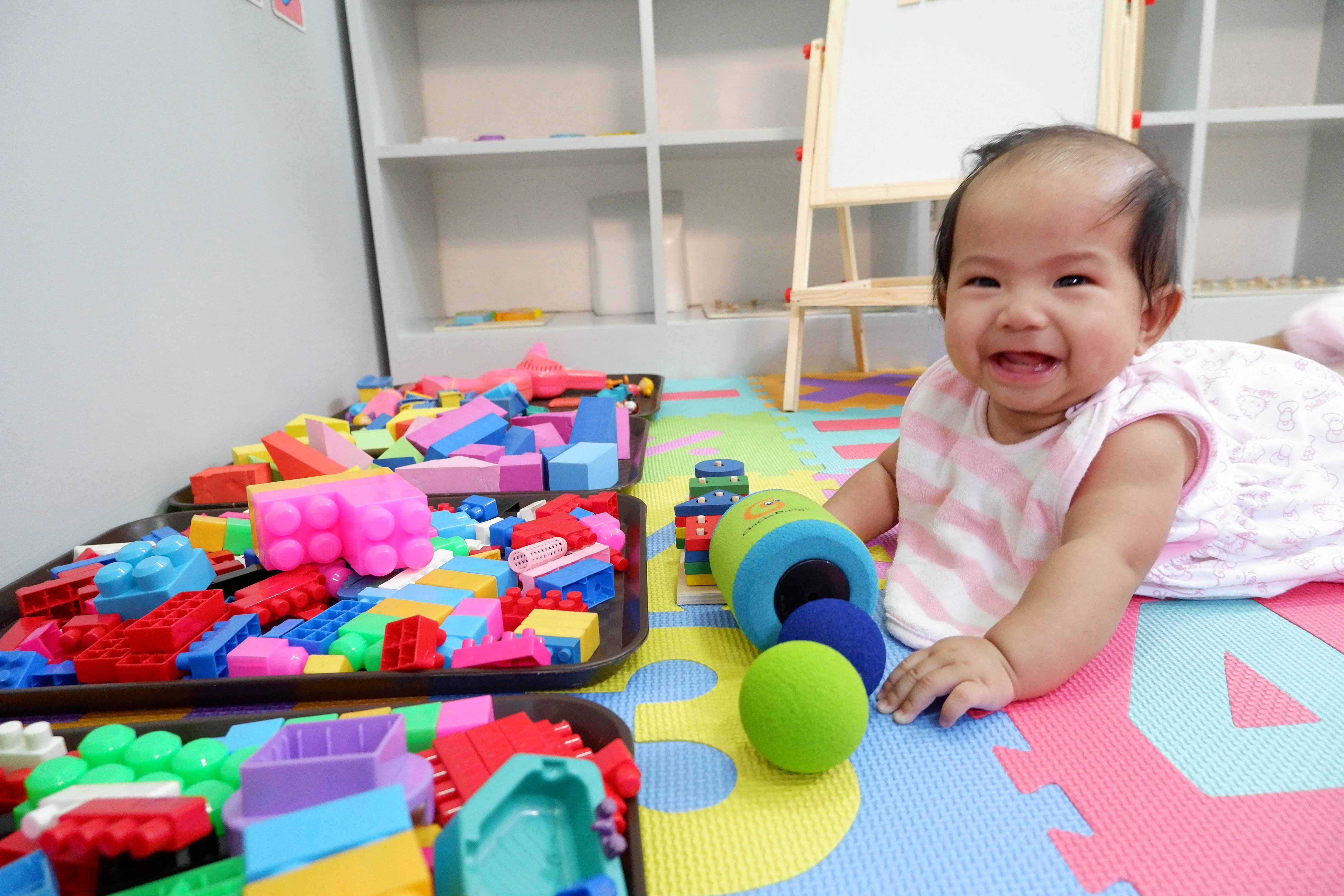
Leave a Reply